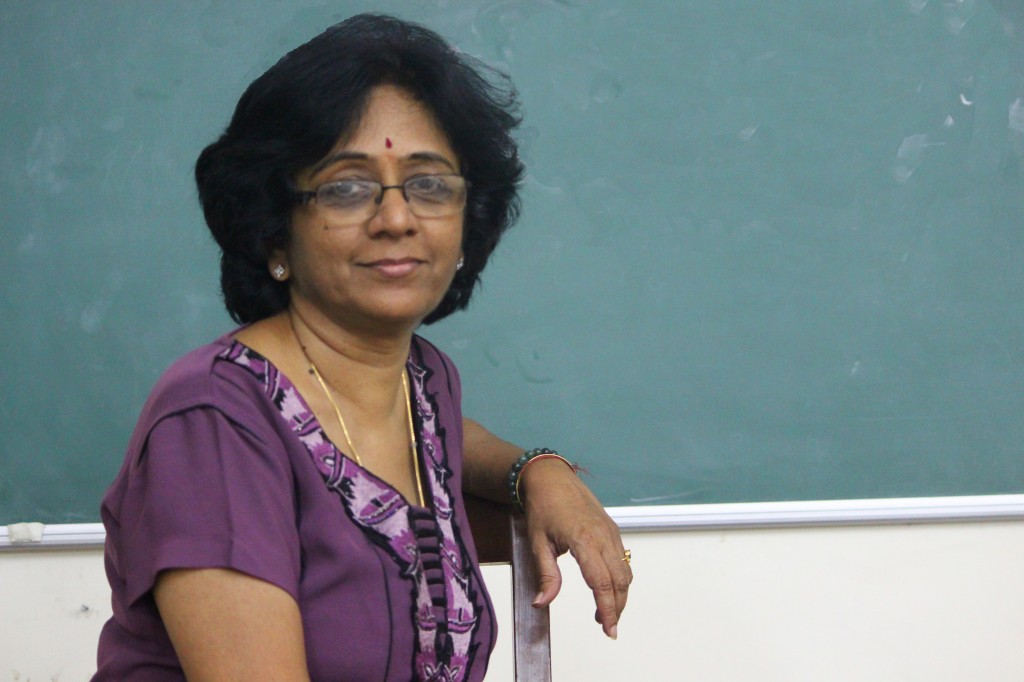Dr S Varalakshmi, professor, Mumbai

Nobody can escape the relevance of political science today. It’s not just about elections. Political science touches our lives in so many innocuous ways.
I’m Dr S Varalakshmi, and I have enjoyed every bit of life’s journey. With the turn of the century, after my stints as a freelance journalist and then a senior manager for corporate communications with Tata, I dabbled with teaching as a visiting faculty and liked it very much. I quit working with Tata and have since been a full time teacher as the head of the Mass Media Department at Jai Hind College, Mumbai.
I did my PhD in the literary and political writings of Nayantara Sahgal. For me, politics is a fascinating journey. It’s so interesting to see how laws are being upheld, subdued, abused and even amended to keep up with changing socio-cultural times.
I have voted in every election that has taken place since I turned 18. Moreover, I remember every candidate I have voted for. Elections for me represent empowerment. When a citizen decides himself who he thinks is the right person for a post — that’s an empowering moment.
As citizens, we express our angst against the ineptitude of our leaders and want positive change to happen. An arm-chair critic cannot bring about change unless she or he participates in the electoral process. Thus, it is the duty of every citizen to exercise her or his franchise.
Think about this: Concerns over the security of women in the country led to mass candle-light marches. Corruption within the government sparked off a wave of anger that resulted in mass movements across the country. However, on election day, do the same people who spill out on the streets to voice their opinion cast their vote?
Very often, this public outrage doesn’t translate into people exercising their right to vote.
The Election Commission has taken the right steps to promote a higher voter turnout by declaring a public holiday on the day of voting but this year, interestingly, they have come out with a number of ads encouraging people to vote.
However, public responsibility is paramount. Do people perceive this holiday as an opportunity to socialise with friends? Or as an opportunity to celebrate social responsibility?
As a professor teaching political science, I believe that political awareness amongst my students has decreased. Students 8-10 years ago had the pulse of what was happening. Note that this is my perception and does not apply to the entire country.
I constantly strive to make my students be aware of and be interested in political science. What needs to be done is to relate daily socio-political events to the theory. Only then can they connect with current-day political processes. In addition, local communities must reach out to their community members and encourage them to cast their vote. Older people who have a history of good voting patterns must explain the importance of election day to the youth.
All of the above will build a sense of awareness, and in turn, make students part of a positive change.
As a professor teaching media studies, it is interesting to see the role the media has played. Ideally, the media is supposed to provide all parties with an equal bandwidth to express themselves. They must provide an informed perspective with regard to any political ideology.
While it isn’t wrong for a media house to have an allegiance, I would look forward to them being overt about it, as seen in the USA. The reason for this is – in the Indian context – that media houses position themselves as unbiased, but covertly align themselves to a political party. This is dangerous as it misleads public opinion.
In the past few weeks, candidates have used the media as a platform to say anything and everything that comes to their minds. It has been more theatrics than anything else. This time around, the elections are personality driven, i.e., a face has been put to every party, like in the presidential form of elections. This has, as a matter of fact, increased TV viewership!
Social media played a big role during these elections, and its importance will only increase during the next elections. This is a platform that must be targeted more effectively in the years to follow.
I would like to tell our political class a few things. First, to see themselves as individuals who are serving the nation, not leaders as the word ‘neta’ suggests. And second, even after 67 years of independence, tickets are still given based on caste and religion. Don’t do that.
At the end of the day, whatever the outcome of these elections, a responsible government is what is needed. More important, a responsible opposition that won’t let the executive run away with policy making. They must play their vital role in the functioning of a democracy. But most important, we need a vigilant and responsible media that will hold the government accountable at every step of the way.
As told to Jehan Lalkaka. This interview has been lightly edited for clarity.